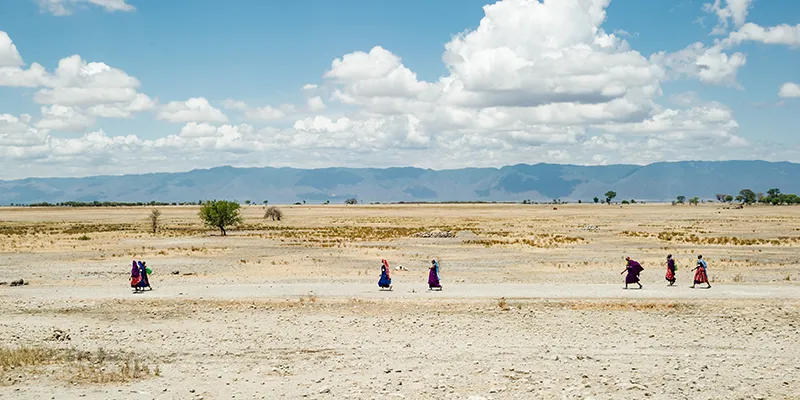World Humanitarian Day: Here is how climate change takes a toll on human health
World Humanitarian Day is observed on 19 August. This year, the theme is the climate crisis, which aims to highlight the costs of climate change on human beings.
The climate emergency is wreaking havoc across the globe and there is a need for urgent and immediate action. This year, World Humanitarian Day, puts the spotlight on how it has impacted human beings. Apart from loss of occupations, property and wildlife, it takes a huge toll on human health as well. Climate change impacts social and environmental conditions and is expected to cause 250,000 deaths each year between 2030-50. Here we highlight the human health costs of climate change in solidarity with the global climate action for people who need it the most.
Increased risk of natural disasters
According to WHO, the number of weather-related natural disasters have tripled compared to the 1960s. These disasters hit developing countries harder and take a huge toll on human life. As sea levels rise, a large population living within a certain radius of the sea will be forced to shift which is bound to take its toll on mental health as well increase the risk of communicable diseases. Floods and extreme, untimely precipitation have also become more common and they not only cause physical damage, but also contaminate sources of drinking water, becoming breeding ground for disease carrying insects and often disrupt medical services.

Across the world, populations face drought conditions on a daily basis and have to walk miles to get water for their daily needs
Extreme heat
Human activities like burning of fossil fuels have released a large number of greenhouse gases that trap heat. This has led to the gradual warming of the Earth. Global warming has resulted in significant loss of life due to extreme heat over the past few years.
These extreme temperatures further the risk of cardiovascular and respiratory diseases as they raise levels of ozone and other pollutants in the air. Pollen also survives better in extreme heat triggering millions of asthmatic patients around the globe.
Disruption of rainfall pattern
Due to global warming, the age-old pattern of rainfall has been disrupted. Untimely rainfall or dry spells destroy seasonal crops and lead to loss of staple food resulting in increased starvation among vulnerable populations. Further, untimely rainfall contaminates water resulting in increased risk of water-borne diseases such as diarrhoea, while less rainfall may result in drought and famine in extreme cases.
Increased exposure to diseases
Studies suggest that climate change is likely to increase water and vector borne diseases and even expand the area of transmission of diseases caused by various cold-blooded animals. For example, it is estimated that schistosomiasis, a snail borne disease, which was earlier present only in China may widen its geographical range. It may further lengthen the seasons of transmission. It is estimated that over the next few years, cases of malaria ( caused by the Anopheles mosquito ) and dengue ( caused by the Aedes mosquito ) are likely to increase significantly.
YourStory’s flagship startup-tech and leadership conference will return virtually for its 13th edition on October 25-30, 2021. Sign up for updates on TechSparks or to express your interest in partnerships and speaker opportunities here.
For more on TechSparks 2021, click here.
Applications are now open for Tech30 2021, a list of 30 most promising tech startups from India. Apply or nominate an early-stage startup to become a Tech30 2021 startup here.
Edited by Diya Koshy George







